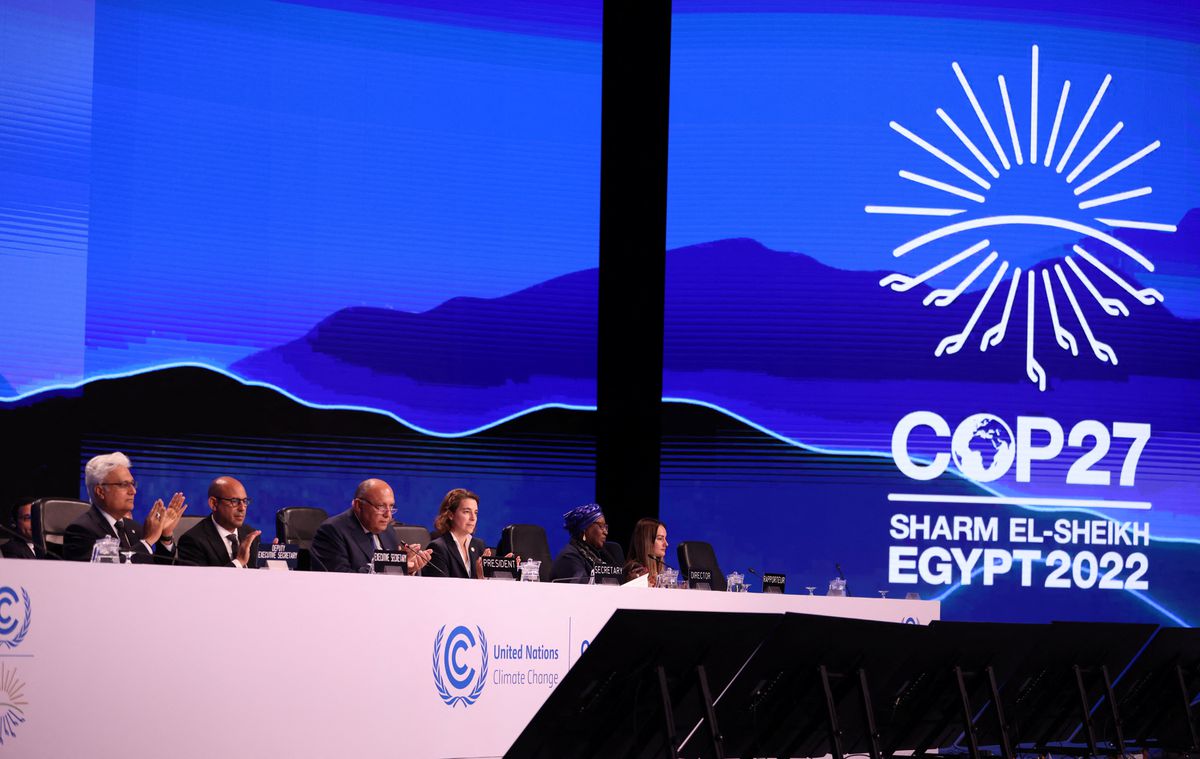After days of intensive negotiations, the United Nations Climate Change Conference COP27 concluded Sunday, November 20, with a historic agreement to provide “loss and damage” funding by industralised nations for developing countries most affected by climate disasters.
The agreement establishes a fund for loss and damage, which refers to the most severe impacts of extreme weather on the physical and social infrastructure of developing countries. According to the United Nations Development Program (UNDP), developing countries suffer 99% of the casualties attributable to climate change.
Due to poor infrastructure, it takes longer for low-income countries to rebuild after natural disasters, and many people in developing nations are not usually protected by social safety nets as those in developed nations.
To cope with climate disasters and become more resilient to damages, developing and emerging countries will need USD 2 trillion (EGP 49 trillion) per year by 2030.
“This COP has taken an important step towards justice,” UN Secretary-General António Guterres said in a video message. “I welcome the decision to establish a loss and damage fund and to operationalize it in the coming period.”
Egypt’s Minister of Foreign Affairs and president of the COP27 UN climate summit, Sameh Shoukry, also commented on the signing of the agreement.
“We rose to the occasion,” Shoukry said. “We worked around the clock, day and night, but united in working for one gain, one higher purpose, one common goal. In the end we delivered. We listened to the calls of anguish and despair.”
However, not all are satisfied with the progress made on the commitments made during last year’s UN climate summit, COP26 in Glasgow.
Vice President of the European Commission, Frans Timmermans, expressed his disappointment in some countries’ attempts to eliminate the 1.5 Celsius goal for reducing emissions, and to remove the requirement established in Glasgow for countries to update their plans on emissions every year.
“There were too many attempts to roll back what we agreed in Glasgow,” he said. “This deal is not enough [on cutting emissions]. We have all fallen short.”
Alok Sharma, the UK’s president of COP26 last year, also expressed his grievances regarding the final agreement, saying: “Peaking emissions by 2025 is not in this text. Follow-through on the phasedown of coal is not in this text. The phasedown of all fossil fuels is not in this text.”
This year’s COP27 is under the theme “together for implementation”, which brings special focus to the plight of developing nations, particularly in Africa. More than 100 heads of state have attended COP27, including US President Joe Biden last Friday. However, major global powers such as China, India and Russia are all absent from the event, as well as Canada’s Prime Minister Justin Trudeau.
More details on the fund will still be revealed soon, with workshops expected to be held later in 2023 to figure out more clearly how the fund will function.






Comment (1)
[…] by Saudi Energy Minister Prince Abdulaziz bin Salman at the Saudi Green Initiative held during COP27 in Sharm El-Sheikh, Egypt, in November […]